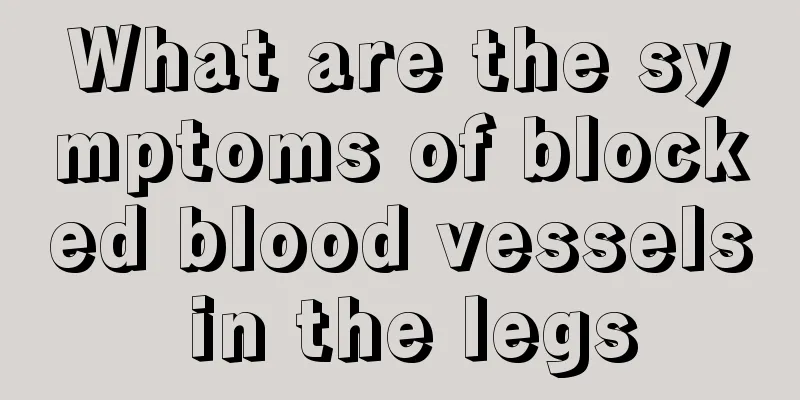Will rectal cancer cause pain in the anus?

|
In advanced stages of colorectal cancer, you may experience pain in the anus, especially if the cancer has spread or is pressing on surrounding tissue. Specific causes of pain include enlarged tumors, inflammation, infection, or discomfort caused by constipation. It is recommended to see a doctor early to determine the cause. 1 Possible cause: ① Tumor compresses surrounding tissues: The proliferation of rectal cancer tumors may compress nearby nerve endings, causing discomfort or pain inside the anus, especially in the late stages of cancer. Patients will feel an increased foreign body sensation in the anus, even accompanied by burning or dull pain. ② Tumor ulceration or local infection: The tumor may be accompanied by surface ulceration or secondary infection, triggering a local inflammatory response, which can also cause pain or tingling, and may be accompanied by foul-smelling secretions. ③ Discomfort caused by changes in bowel habits: Rectal cancer usually causes constipation, difficulty in defecation or bloody stools. In this case, repeated constipation and friction of hard stools will increase the sensitivity of the rectum and anus, causing pain. ④ Cancer metastasizes to bones or nerves: In more serious cases, rectal cancer may spread to adjacent organs or bone tissue, especially collapsible lesions may radiate to the nerves near the anus and cause pain. 2: ① Seek medical attention promptly: If you suspect rectal cancer or have persistent anal pain, it is recommended that you seek medical attention immediately and have a clear diagnosis through colonoscopy, biopsy or imaging examination. Early detection can significantly increase the cure rate. ②Drug treatment: For early-stage patients, certain chemotherapy drugs such as oxaliplatin and capecitabine may help inhibit tumor growth and relieve symptoms. If the pain is obvious, analgesics such as acetaminophen or opioids can be used to relieve the pain. ③Surgical treatment: Eligible patients may need radical surgery through low anterior resection or abdominoperineal resection to fundamentally eliminate the source of pain. ④ Improve bowel movement: For constipation or difficulty in defecation caused by cancer, symptoms can be improved by taking laxatives such as lactulose or eating a high-fiber diet such as oats, brown rice, and green leafy vegetables. Moderate exercise every day can also help relieve weakened intestinal motility. Avoid delaying. Pain inside the anus may be one of the important signs of rectal cancer. If patients have related symptoms, they should seek medical attention as soon as possible and receive scientific evaluation and treatment. Early diagnosis and timely treatment are the key to improving survival rates and reducing pain. |
<<: What are the causes of prostate cancer
>>: CT features of small cell lung cancer
Recommend
The most effective way to control protein worms
If you like to raise fish, you may sometimes find...
How is tongue cancer diagnosed?
Tongue cancer is the most common oral cancer. It ...
Low pressure and high renal insufficiency
There are many causes of renal insufficiency, and...
How to protect our liver?
The liver is the largest organ in our human body ...
What are the benefits of wearing agarwood bracelets?
In the past, people knew very little about agarwo...
What to do if the glass can't be opened
We know that after filling a glass with water, if...
How to effectively prevent liver cancer? Several key points of liver cancer prevention revealed
A large number of epidemiological studies and inv...
Tips for breaking up large chunks of brown sugar
Whether we are in supermarkets or some food store...
Black tea dregs are a "nourishment" treasure
The uses of black tea dregs. Black tea dregs are ...
What to do if muscle stiffness occurs after surgery
When people get sick, they have to be treated. So...
Can I drink ginger and jujube tea in autumn?
Friends who are keen on health preservation know ...
Chest pain when sleeping on the left side
Everyone has their own habitual sleeping position...
What are the dietary treatments for bladder cancer
Bladder cancer can occur at any age, even in chil...
Can cervical cancer be transmitted through sex?
In our lives, more and more female friends are af...
What to use after using toner
Toner is a commonly used product for women when a...









